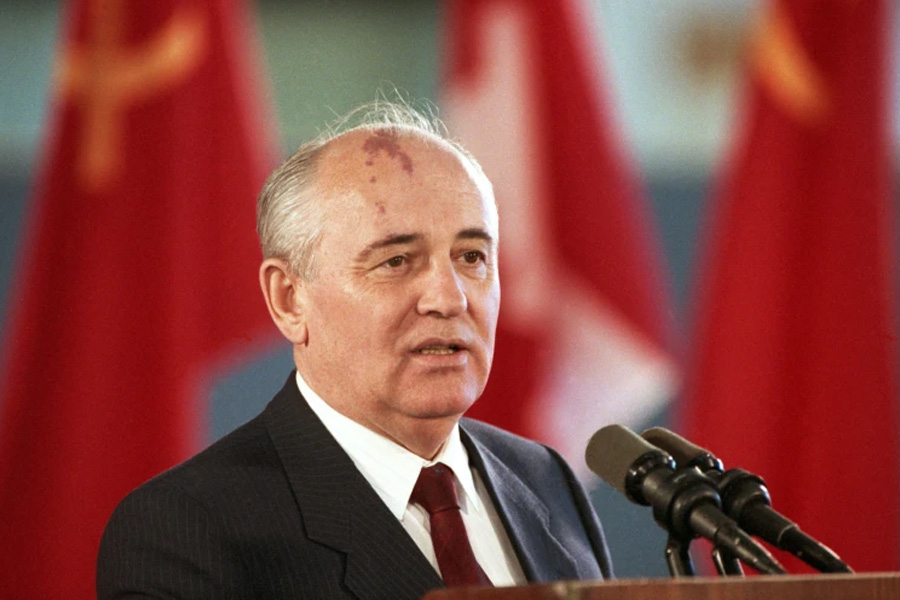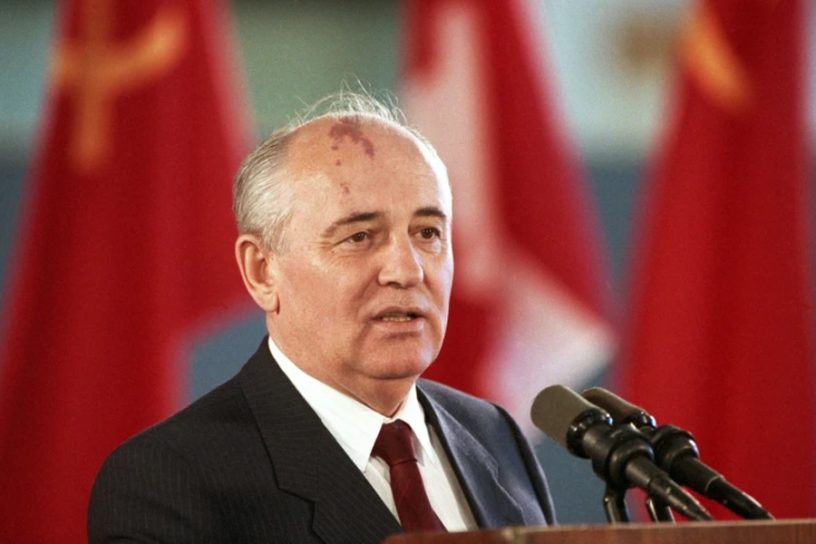
Gorbachev was a holistic reformer — perhaps ahead of his time, says the author.
Author
Anuradha Chenoy, Adjunct Professor, Jindal School of International Affairs, O.P. Jindal Global University, Sonipat, Haryana, India.
Summary
Mikhail Gorbachev, reviled by some, celebrated by others, stepped into the pages of a history which is cited, written and rewritten but cannot be forgotten.
Remembered primarily as the leader of the now-disintegrated Soviet State that desperately tried to modernise and catch up with the West, Gorbachev was overtaken by events and characters within Moscow that created the basis for the collapse of the Soviet Union. A moment that surprised and created a watershed moment in contemporary history.
Gorbachev was a most unusual Soviet leader who rose to the top of the Communist Party of the Soviet Union (CPSU) hierarchy as a member of the Central Committee and then politburo in the 1980s. An ageing leadership that supported reform but witnessed the death of two leaders in quick succession after the death of Leonid Brezhnev helped vault the young Gorbachev to the general secretary position in 1985.
Gorbachev was a quintessential reformer. He saw the strengths and weaknesses of the Soviet state. The deep bureaucratisation was strangling economic, industrial, scientific and social development. The alienation of young people, the burden on women, the alcoholism amongst men. The out-of-control military-industrial complex, the futility of the arms race where one miscalculation meant mutually assured destruction. After all, the Chernobyl nuclear disaster happened in the first year of his office.
Published in: The New Indian Express
To read the full article, please click here.


